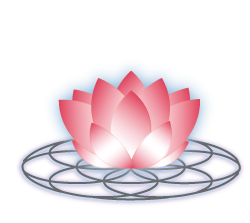Several people are concerned about their sleep. They wonder how to get more sleep, how they can improve their sleep quality, how to stop waking up in the middle of the night, how to fall asleep faster, among others. For those who have a hard time sleeping, sleep is all they can think about - and who can blame them? Sleep is vitally important for our bodies; sleep is one of the only times our bodies heal. If we don't sleep, or sleep poorly, we can inhibit or slow down our bodies ability to heal. It also allows your mind to sort out what has gone through your day. Different ages require different amounts of sleep; that being said, 8 hrs does overlap with all of them (check out Foundations of Health: Sleep for more information).
Sleep Hygiene
An important practice to have to help ensure that you have good sleep, is good sleep hygiene. It’s pretty much the night time ritual that you do before you sleep, to wind down and promote good sleep. This includes discontinuing any electronics for 1 hr or more before bed, using a night filter on your electronics as soon as the sun sets, and sleeping in a dark room with no lights.
Electronics emit a blue light, which throws off our circadian rhythm, causing several people to have a difficult time falling asleep. The blue or white light from electronic devices are strong enough to make our bodies think it is day time, and as a result, it suppresses the production of melatonin by the body, making it harder for you go to sleep. Exposure to any light while sleeping could do this - especially if they are blue light, which can come from LED light bulbs; which is why it is best to sleep where it is completely dark. If this is difficult to do, an easier way to do this would be to use a sleeping mask to mimic a dark room.
Melatonin
Melatonin is a hormone that our pineal gland produces to allow us to go to sleep. It is suppose to be highest at night, when we are sleeping. The problem comes for those who are experiencing a lot of stress. Cortisol is known as the stress hormone, and the two of them have an inverse relationship. This means, that when melatonin is high, cortisol is low, and vise versa. Cortisol is suppose to be highest during the day, and there is a secondary peak in the mid-afternoon. However, people who are stressed can experience high cortisol at night, and this interferes with the concentration of melatonin your body can make. As a result, some people feel like their minds are racing, and are unable to stop it to go to sleep. Melatonin helps regulate the body’s circadian rhythm, and promotes sleep by improving the sleep wake cycle, and studies have shown that it can help decrease the time it takes to go to sleep, as well has increase overall sleep amounts (Psychology Today).
Meditation
I’ve heard different numbers for how much sleep a good 20 minute meditation is equivalent to. They are generally between 4-6 hrs of equivalent sleep. Meditation can be difficult to do, especially if it’s your first time doing it. It allows your mind and body to go into a deeper state of relaxation, where it can rest. Finding time for 20 minutes of meditation during the day can help you with your energy for the rest of the day, and meditating before you sleep can improve your quality of sleep. There's a thought out there that says meditation is about not thinking. Based on Sri Sri’s wisdom talks (The Art of Living), meditation is the “art of doing nothing.” What he means by this is, it’s the art of allowing yourself to do nothing - so you position yourself in such a way that your senses can have a break. This doesn’t mean to actively think, “do nothing or think nothing,” it means that if a thought comes to mind, you see it, and let it go. Like when you are looking out a window in the passenger seat. You let the images go past you. Because the mind doesn’t work like the body. If you actively work your body, it does amazing things. If you actively work your mind, it doesn’t work so well. How many of you at night actively attempt to go to sleep? It doesn’t work, you end up feeling more awake. If you were to meditate, and use no effort into sleeping, then you will be able to sleep easier.
Happy Sleeping!
~ Dr. Charmagne






